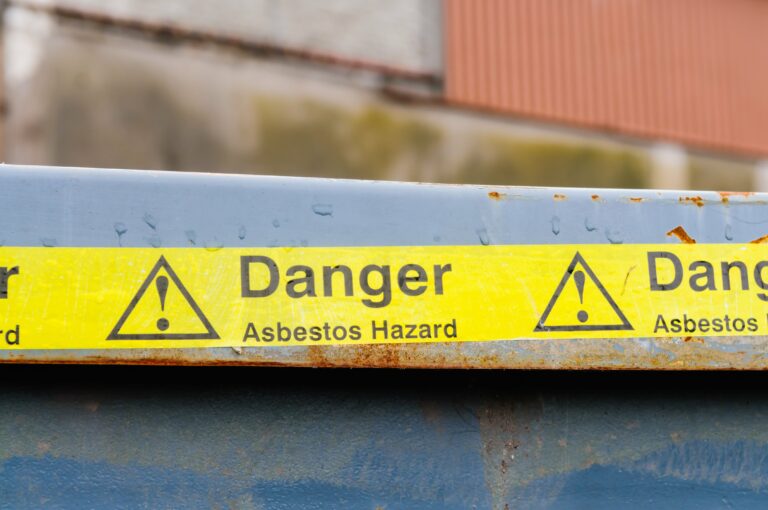Food manufacturers and in particular bakeries are being targeted by the Health & Safety Executive (HSE) for proactive inspections.
In one example, a bakery chain has been heavily fined after the HSE found workers suffered long term exposure to flour dust.
Inspectors discovered employees were consistently exposed to health risks between 2002 and 2016 – with some being diagnosed as suffering occupational asthma.

Ineffective Controls
An investigation by the HSE found there was no effective method of control to prevent:
- Flour dust becoming airborne
- Employees from breathing dust in.
Coopland & Son (Scarborough) Ltd pleaded guilty to breaking the Health & Safety at Work etc Act 1974. It was fined £159,080 with costs of £4,594.
The HSE say “Exposure to flour dust in an industrial setting can cause serious and debilitating health effects”. It stressed companies should be aware it will not hesitate to take enforcement action against anyone falling below the required standard.
Poor Advice
Following the investigation, the company said it had been undertaking health surveillance and monitoring of flour dust levels as required by law – but subsequently found it was operating under incorrect advice!
A spokesperson said measures had since been introduced to address the issues raised.
The impact of bakery hygiene on worker safety has come under increased HSE scrutiny with a special focus on flour dust – a leading cause of workplace asthma.
COSHH
Bakeries handle and process tonnes of flour throughout the day and night. In workplaces where airborne dust particles such as flour pose a risk to staff, an assessment of the concentration of the particles in the air is a legal requirement under the Control of Substances Hazardous to Health (COSHH) 2002 Regulations.
Flour dust has been set a “Workplace Exposure Limit” comprising a long-term exposure limit of 10mg/m3 (averaged over 8 hours) and a short-term exposure limit of 30mg/m3 (averaged over 15 minutes).
However, due to the chronic health effects the employee’s exposure to flour dust MUST be reduced to “as low as reasonably practical”.
Although the HSE provide guidance, there are many factors that need to be considered in each particular situation – individual assessment is strongly advisable to make sure you are compliant.
Very fine particles of dust – known as respirable dust – are not visible. Therefore, even if the dust cannot be physically seen, it may still be present in high volume. If dust particles can be seen in shafts of light, then this is an indication that there are high levels of dust in the air that pose a risk.
Regular inhalation of fine flour particles can cause “White Lung” – also known as “Baker’s asthma”. This is a condition that bakery employees develop after being exposed regularly without the correct controls and preventive measures in place. HSE statistics reveal bakery workers are the occupation group at second highest risk of contracting occupational asthma.
Assessment/Health Surveillance
COSHH requires substances hazardous to health be controlled. Bakeries need to be having a COSHH assessment by a competent person on a yearly basis.
Employers must also obtain information about employees’ health as well as data on the exposure levels of hazardous substances in the workplace. This is to protect them from potential health risks by detecting health issues or disease early on and minimising exposure to harmful substances.
It is not enough to simply carry out health checks and record them. Data needs to be interpreted by a professional physician who is competent in occupational medicine. Action must be taken if there is a problem. For example, an affected employee may need to be redeployed to stop the risk escalating further.
Training
It is essential staff working with hazardous substances are provided with information, training and instruction – this includes cleaning and maintenance staff.
Employees need to understand the outcome of the COSHH assessment and what this means for them – including telling them and providing data sheets on:
- What the hazards and risks are
- Relevant workplace exposure limits
- Results of any monitoring of exposure
- General results of health surveillance
- Procedures for an accident or emergency
- Planned future changes in processes or substances and equipment use.
Top Tips
Making the following changes when handling flour can dramatically reduce airborne dust:
- Not tipping flour from height when sifting, mixing or weighing
- Gently tipping flour – not dumping it
- Mixing at low speed until the flour is combined with the other ingredients
- Using an enclosed system to transfer the flour or having a separate contained area for sifting, mixing and weighing
- Vacuuming or using wet cleaning methods – never sweep up spilt flour
- Regularly cleaning high level surfaces where flour dust can collect
- Carefully rolling and disposing of flour sacks – avoid flattening or folding as this can cause dust plumes
- Storing empty flour sacks elsewhere
- Making sure flour and other powder containers have lids and only remove when necessary
- Putting extraction equipment or LEV systems in very dusty areas. Fit a manometer or pressure gauge near the extraction point to show the extraction is working properly – make sure the system is on and functions properly before work begins
- Personal respirator equipment should be considered for very dusty tasks in situations where dust extraction is impossible. RPE should be the last line of defence and ONLY used “in conjunction with other engineering controls”.








